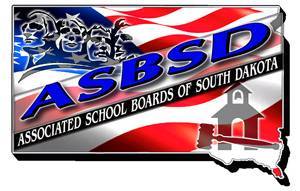Two percent is still currently in the cards for school districts for the 2020-21 school year, but the possibility of a special session looms.
At the end of the legislative session and prior to the outbreak of the Coronavirus in the state, Gov. Kristi Noem and the legislature came together to support a two percent increase in state aid for schools. State law requires schools receive an annual increase in funding of three percent or inflation, whichever is less and inflation for Fiscal Year 2021 is at 2 percent.
House Bill 1043, which sets the School District General Fund levy, target teacher salary and overhead rate for FY 2021, was passed last month on a 60-5 vote by the House and 32-2 vote by the Senate.
The bill sets the target for statewide average teacher salaries to$51,367.47 and increases the overhead rate in the funding formula to 34.93 percent for next school year The bill also sets general fund levies as follows:
- Maximum commercial property levy of $6.682/thousand dollars of taxable valuation (subject to limitations noted below);
- Maximum ag levy of $1.433/thousand dollars of taxable valuation;
- Maximum owner-occupied levy of $3.229/thousand dollars of taxable valuation.
However, since the end of the main run of the legislative session the state’s economy has dramatically changed and it’s possible a special session will be needed in June to adjust the state’s budget for FY21. In a press conference in March, Gov. Noem said the state’s budget “has dramatically changed” and in the future there could be budget bills that the state will “need to make decisions on.”
In their March revenue figures release, the South Dakota Bureau of Finance and Management noted “an impact is anticipated on multiple revenue sources.” Click here to read about the March revenue collections.
“We are keeping tabs on what’s occurring with the state budget, the revenue and what could occur in a special session with the budget,” ASBSD Executive Director Wade Pogany said.
“Given what’s happening with the state’s economy, school districts should be prepared for a possible change in what’s provided in state aid.”
ASBSD will provide direct updates to school district leaders on state aid, when available.
For additional updates on everything related to K-12 education, check the ASBSD Blog.
